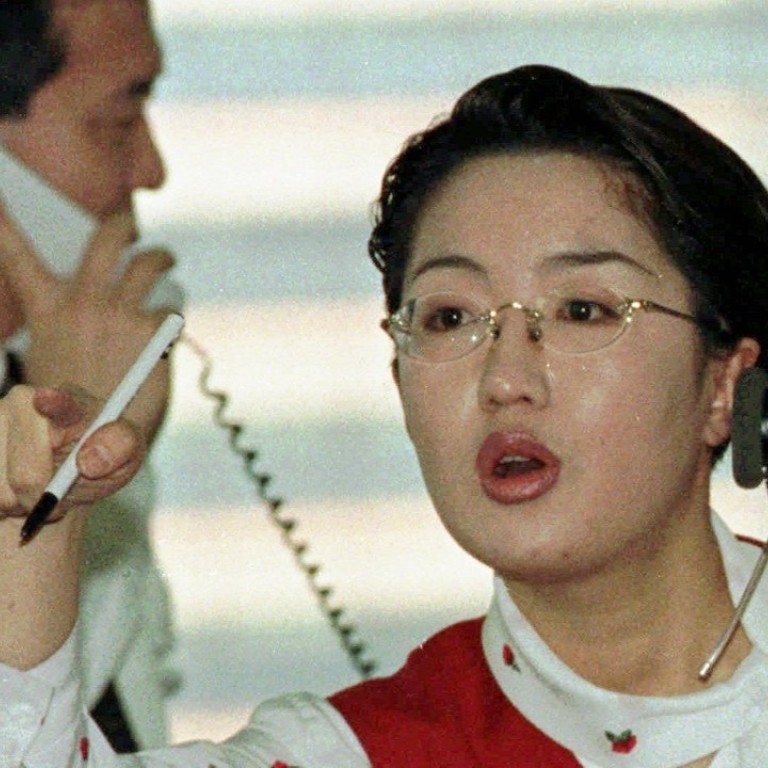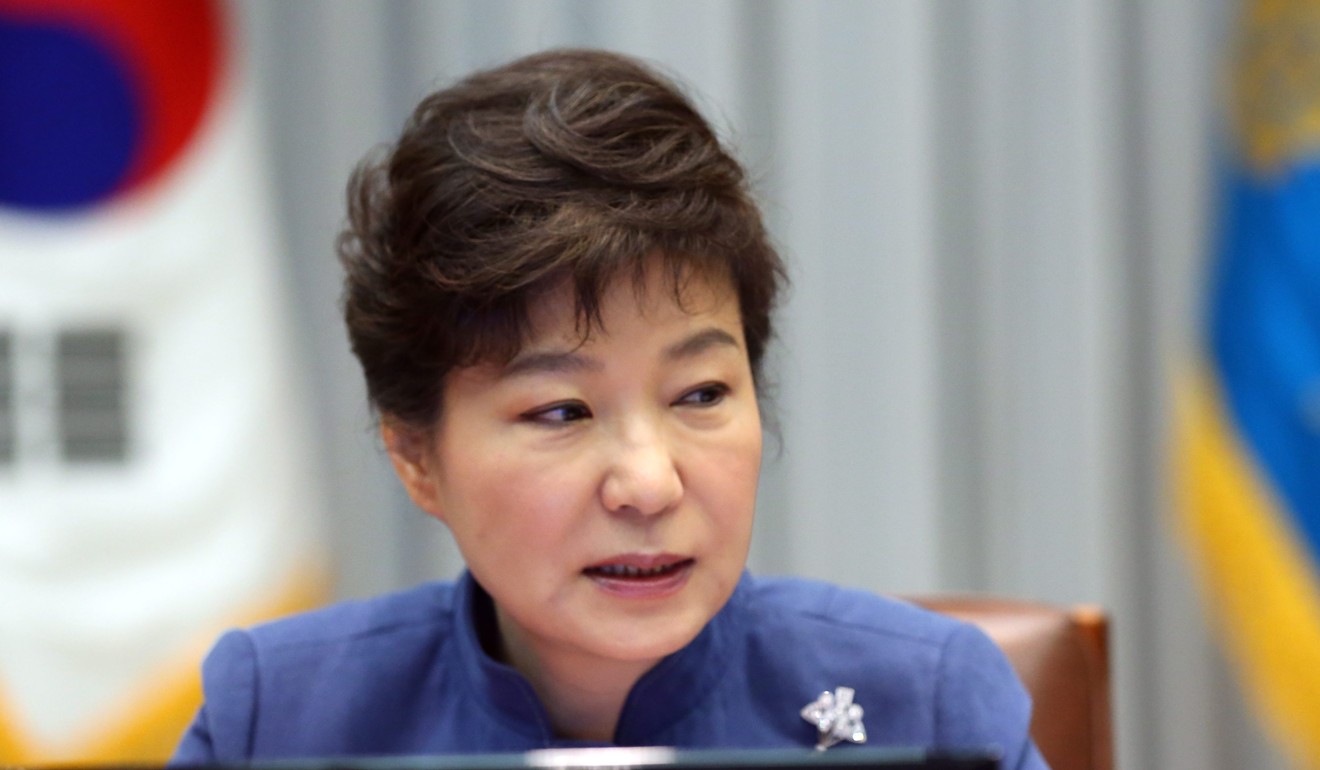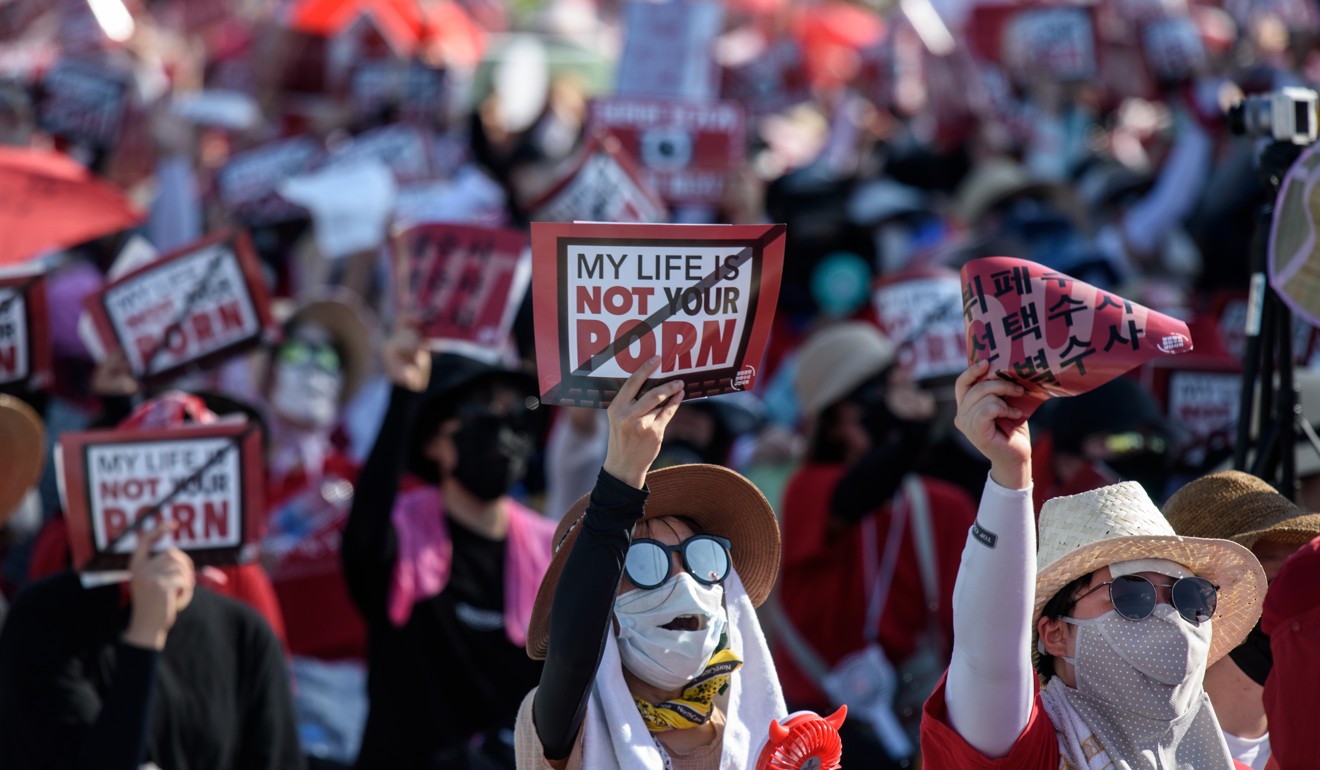
No girls allowed: South Korea’s male-dominated corporate culture and sexist recruitment policies come under fire
- Women often struggle to find a foothold in the country’s job market and a series of firms have now been caught allegedly using targets to keep it that way
In her year-long quest for a job, South Korean college graduate Casey Lee has faced a barrage of personal and contradictory questions.
“One company asked if I had a boyfriend and when I’d get married,” she said. “Another asked why I didn’t have a boyfriend and wondered if someone like me who had no plan to get married soon was trustworthy enough or had a personality issue.”
Women often struggle to find a foothold in South Korea’s male-dominated corporate culture and a series of firms have now been caught allegedly using sexist recruitment targets to keep it that way.

I wanted to scream out loud, ‘I’m only here to get a job!’
Lee’s first interviewer complained that women tended to quit their positions once they had a child, while the other launched a tirade against “irresponsible young women” like her – she is 25 and single – for abandoning their responsibility to have children “for the country’s future”.
“I wanted to scream out loud, ‘I’m only here to get a job!’” she said, adding male applicants in the same group-interview sessions were rarely asked similar questions.
Lee is still looking for work, despite a degree from Seokyeong University in Seoul.
She is not an isolated case, and evidence points to some firms in the world’s 11th-largest economy systematically discriminating against women.

Three of South Korea’s top four banks have been embroiled in accusations they set ratios for male and female recruitment, lowering women’s test and interview scores and raising men’s to hit the target.
A total of 18 executives have been charged or convicted, including the chairman of Shinhan Financial Group, the country’s second-biggest lender.
The ugly face of South Korea’s obsession with women looking forever flawless
And last week the Supreme Court upheld a four-year jail sentence given to the former CEO of state-run Korea Gas Safety Corp (KGS) for offences including bribery and violating equal opportunities laws.
Despite its economic and technological advances, South Korea remains a patriarchal society, and has one of the world’s thickest glass ceilings for women.
Only 2.7 per cent of the 15,000 top executives at the country’s 500 biggest firms are female, a government survey showed last year.
At 36.7 per cent, South Korea also has the widest gender pay gap among the OECD club of advanced economies.

Jobs at state-run firms such as KGS are in high demand as they offer lifetime employment, but on former CEO Park Ki-dong’s instructions seven qualified women applicants were eliminated – including the top scorer among the 31 finalists – and replaced by men who performed comparatively poorly.
Park “excluded women without legitimate reason by ordering his subordinates to manipulate test scores … seriously undermining social trust”, the Supreme Court said in its ruling.
Is South Korea’s gaming industry a hotbed of misogyny and sexism?
The CEO had claimed women would disrupt the firm’s operations by taking maternity leave.
In the conservative country, many married women – whether working or not – are expected to take sole responsibility for household chores and childcare, with the double burden seen as a major cause of the country’s paltry birth rate, the lowest in the world.
With day care centres lacking and the country’s working hours notoriously long, many women quit their jobs after becoming mothers.

Recruitment is highly competitive at the best of times, and doubly so in potentially lucrative banking.
Cho Yong-Byoung, chairman of Shinhan Financial Group – the country’s second-largest finance house – was charged two weeks ago with violating equal opportunities laws for ordering subordinates to maintain a 3:1 ratio between male and female recruits.
South Korean women fight back against hidden-camera sex crimes
In such an unfair world as this, how hard should women try to climb the ladder – if we can get our hands on the ladder at all?
According to state regulators, KEB Hana Bank – the fourth largest in the country – set a 4:1 target for new hires in 2013 and ended up taking on 5.5 men for each woman. Without discrimination the ratio would have been almost equal, officials said.
Seven of its managers are on trial, one telling the court that the company’s clients were mostly men and “feel more comfortable” with male staff who can “smoke or drink more freely”.
But sentences can be token.
Three senior managers of KB Kookmin Bank – the country’s top lender – were convicted last month of lowering test scores for 112 female applicants and raising those of 113 men.
“The accused deserved criticism for changing the fate of many job applicants and causing so great a sense of betrayal and despair in their hearts,” the court said.
But the offenders’ personal responsibility was limited, it went on, as they were simply “following social customs”.
The trio were given suspended jail terms and the bank fined a meagre 5 million won (US$4,500).
“South Korean women are fighting on an extremely unequal playing field that doesn’t seem to have changed for decades,” Bae Jin-kyung, head of the Korea Women Workers’ Association, told reporters.
“In such an unfair world as this, how hard should women try to climb the ladder – if we can get our hands on the ladder at all?”

.png?itok=arIb17P0)